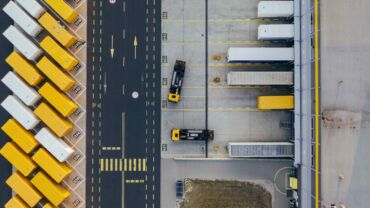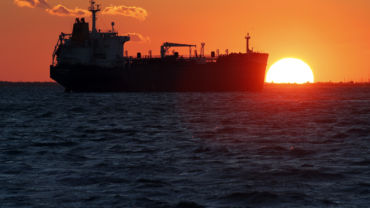The United Kingdom and European Union narrowly avoided the worst of Brexit’s possible outcomes when the EU-UK Trade and Cooperation Agreement (TCA) was signed on Dec. 24, 2020, a week before the Jan. 1 deadline for trade negotiations. News of the accord may have allowed supply chain managers to breathe a brief sigh of relief, but there are still plenty of changes in the 1,246-page agreement that will significantly impact post-Brexit supply chains for years to come.
_______________________________________________________
Global trade strategies for success
Download our free whitepaper, Brexit’s Impact on Global Trade and How Technology Can Help Multinationals Succeed, to learn about specific trade compliance and supply chain strategies you can implement to optimize spend and mitigate disruption.
_______________________________________________________
New UK-EU rules and requirements post-Brexit
The TCA allows businesses in the UK and EU to trade without the burden of tariffs or quotas, provided the goods meet the agreement’s new rules of origin. In order for goods to qualify, however, importers and exporters must provide documentation to customs officials proving the origin of any given product—something they didn’t have to do pre-Brexit. And regardless of where a product originates, the TCA institutes new border protocols for customs declarations, duty calculations, excise tax, value-added tax (VAT), product certifications, and more, all of which require additional paperwork, adding extra costs and layers of administrative friction to the entire import/export process.
The TCA only applies to goods traded between the UK and EU, however. Multinationals with supply chains that run through the UK and EU from other countries, such as the United States, will have to contend with a multitude of new tariff calculations and other regulatory hurdles, some of which could substantially alter the cost and logistics of existing supply chains. Complicating matters even further is the fact that the true costs and consequences of Britain’s break from the EU are currently being masked by the COVID-19 pandemic, which has reduced both the demand and supply of many goods and services throughout the UK and EU.
New rules of origin in the UK-EU trade deal
Among the most significant changes introduced by the UK-EU trade deal are the aforementioned rules of origin. For products traded between the UK and EU to receive preferential duty treatment (i.e., zero tariffs and quotas), importers and exporters must file customs documentation proving that the goods they are trading “originated” within the EU-UK trading bloc. Goods that use parts manufactured outside the bloc must meet a product-specific threshold of UK-EU-sourced parts (usually 50% or more) in order to qualify. Those that don’t qualify will have to follow World Trade Organization rules or, if importing into the UK, the rules of Britain’s recently implemented UK Global Tariff (UKGT).
The TCA contains different thresholds for different products, however, and calculating the sourcing percentage of some items can be a challenge.
For example, the average automobile contains close to 30,000 parts sourced from more than 30 different countries. Under the TCA, gasoline and diesel cars need to be made with at least 55% of UK-EU-sourced parts in order to qualify for zero tariffs. Meeting that threshold could be difficult for some auto manufacturers because their supply chains are so diversified. Currently, UK auto manufacturers source an average of 44% of their parts locally, and the provenance of every part factors into the calculation of a car’s origin. But even if a steering wheel or set of brakes is sourced within the UK-EU, only 20-25% of those parts may qualify for preferential tariff treatment if the part itself was imported from, say, Japan or South Korea.
International networks and supply chain considerations
Other market sectors with complex international supply chains—e.g., electronics, retail, pharmaceuticals, biotech, textiles—could face similar challenges meeting rules of origin requirements. And regardless of the products they sell, all will have to re-calibrate the delicate choreography involved in keeping their supply chains running smoothly, taking into account the time and resources necessary to provide accurate customs documentation of all kinds.
For example, retailers in the UK that import products from third countries (such as the United States), warehouse them in the UK, and export them to the EU are now subject to EU tariffs. Likewise, the value chain for textiles and apparel runs through numerous foreign suppliers and offshore manufacturing facilities before reaching the UK or EU. The TCA significantly alters the cost-benefit calculus of these extended international networks, often raising the cost of raw materials at a time when demand has fallen (partly due to the pandemic), and overall exports from the UK are down.
Multinational supply chain managers will need to factor in all of these variables and more in order to make informed decisions. Situations may in fact arise where accepting preferential treatment under the TCA is not the most cost-effective option, and the better choice is to trade under WTO rules or another country’s free trade agreement. Depending on the circumstances, it might also become necessary to relocate facilities or find other solutions for warehousing and distribution.
Costs of compliance with new UK-EU import/export protocols
Though the TCA offers zero tariffs and quotas to qualifying goods, it also introduces post-Brexit import/export protocols that did not exist before, the details of which may contain several devils for companies trying to comply. In fact, the new rules are so cumbersome that the UK government advises businesses to hire a customs broker, freight forwarder, or fast-parcel operator to facilitate the process. Otherwise, inaccurate or incomplete paperwork could hold up shipments or disqualify certain goods from receiving preferential treatment.
For example, all companies that import to the EU need to get one or more new Economic Operators Registration and Identification (EORI) numbers, of which there are now three different kinds:
- one for goods exported from Great Britain
- one for goods exported and imported to the EU
- one for goods going to and from Northern Ireland
To avoid tariffs, every product also now needs the proper Commodity Code (CC). These codes are the same as those issued by the World Customs Organization, but failure to use the proper code can be costly because customs uses the CC to calculate tariffs and value-added tax (VAT). VAT rules have changed as well, and some goods—such as animal and plant products, medicines, chemicals, and weapons—require an additional special license and different labeling.
It is important to get these and many other details of the TCA customs protocol right, or shipping delays are inevitable. For most goods entering the UK, there is a six-month grace period during which customs declarations can be deferred or simplified, but full declarations are mandatory after July 1, 2021. When full declarations resume, companies can also expect an uptick in trade compliance audits—yet another reason to get the necessary processes for origin determination, duty calculation, certification, and record-keeping in place to meet the TCA’s various new requirements.
Sanctions and export screening
Sanctions are another area where the UK’s break from the EU complicates trade compliance. The TCA does not address sanctions, foreign policy, or security, but now that the UK is an independent nation, the UK and EU are operating under different sanctions regimes. Among other things, the UK is developing its own sanctions lists and has already removed more than 100 designated parties from lists it used to share with the EU. And in some cases, such as shareholder rights and licensing requirements, the UK is developing its own sanctions criteria.
As a result, businesses operating or hiring people in the UK and/or EU must now track and screen against both sanctions lists—and, as time goes by, stay abreast of other regulatory changes. Also, as companies respond and adapt to the TCA, supply chain professionals will inevitably be working with new suppliers, manufacturers, partners, brokers, and other entities, all of whom will need to be screened and added to a master database.
Adapting and succeeding in the new post-Brexit global trade landscape
Businesses trying to navigate this new territory in the months and years ahead will need resilient, flexible supply chains informed by technology that allows trade compliance managers to map, forecast, plan, and pivot as necessary, all while maintaining the speed and efficiency needed to meet everyday business demands. Expert trade data analysis will also play an increasingly important role in future supply chain strategy because the fluid nature of modern global trade requires constant monitoring to anticipate potential disruptions and identify alternative solutions for sourcing, manufacturing, shipping, and distribution. Furthermore, any border delays caused by incomplete or inaccurate documentation will cascade down the value chain and squeeze margins that are, for many companies, already distressingly thin.
Discussions over the details of the TCA are ongoing, particularly with regard to the accord’s Northern Ireland Protocol, which has been a consistent point of contention. The TCA may have removed uncertainty surrounding global trade post-Brexit, but uncertainty about precisely how these new rules will affect individual businesses is only just beginning.
Resources and support for UK importers and exporters
If you are struggling to file customs declarations, you may be eligible for a grant with HRMC. Grants can be used for recruitment, training, and IT/software improvements to help your business with customs declarations.
Your business must not have previously failed to meet its tax obligations and either:
- currently be established in the UK
- have been established in the UK for at least 12 months before submitting the application or hold Authorized Economic Operator status
In addition, your businesses must meet one of the descriptions below:
- complete or intend to complete customs declarations on behalf of your clients
- be an importer or exporter and complete, or intend to complete, declarations internally for your own goods
- be an organization that recruits, trains, and places apprentices in businesses to undertake customs declarations
- trade with the EU and do not intend to complete your own declarations, but want to undertake customs training
Download our free whitepaper, Brexit’s Impact on Global Trade and How Technology Can Help Multinationals Succeed, for more trade compliance and supply chain strategies to ensure long-term success post-Brexit. You can also visit our Brexit resource hub for more information.







